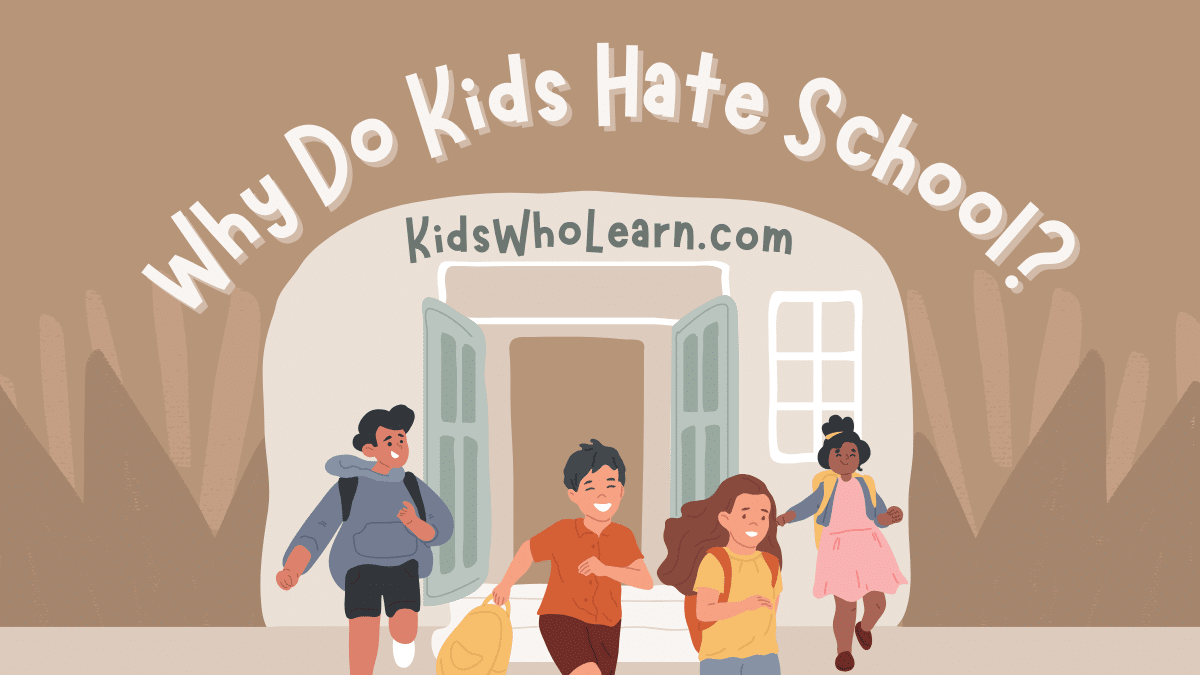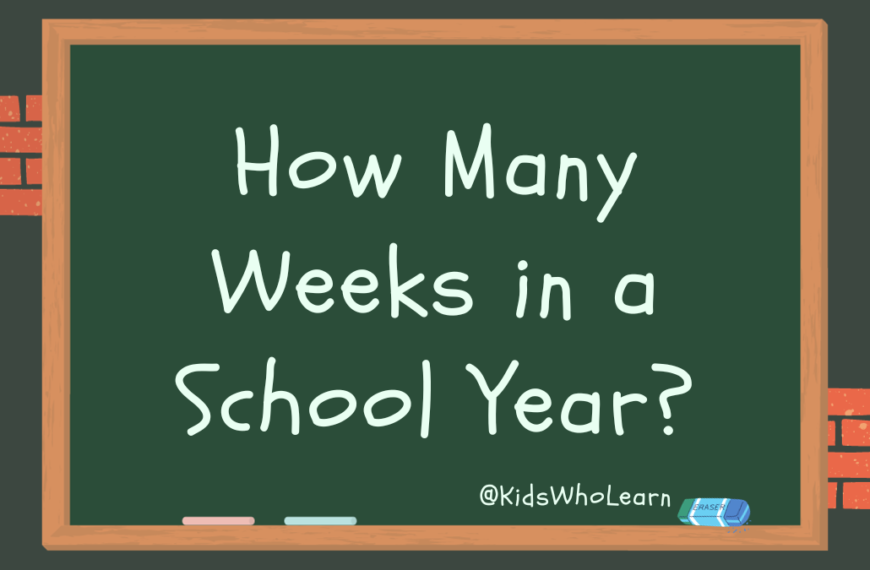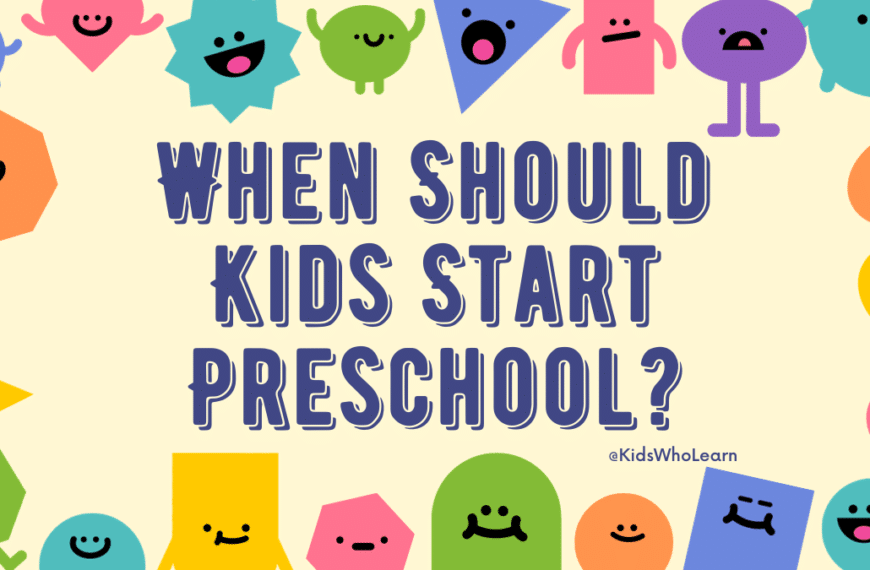Do you remember the excitement you felt on your first day of school? The new backpack, the fresh pencils, the chance to learn and make new friends. But for many kids, that excitement fades quickly, replaced by boredom, frustration, and even dread. So why do so many kids hate school?
Understanding the Concept of School Dislike
There are many factors that can contribute to a child’s dislike of school. Some kids struggle academically and feel overwhelmed by the work. Others may find the physical environment uncomfortable or distracting. And still others may struggle with social aspects of school, such as making friends or dealing with bullies.
Psychological Factors
In addition to these more concrete factors, there are also psychological factors that can play a role in a child’s dislike of school. For example, anxiety, depression, or other mental health issues can make it difficult for a child to focus on learning and enjoy the school experience. Additionally, kids who have experienced trauma or difficult life circumstances may struggle to feel safe and comfortable at school.
Key Takeaways
- There are many factors that can contribute to a child’s dislike of school, including academic challenges, physical environment, and social aspects.
- Psychological factors such as anxiety, depression, and trauma can also play a role in school dislike.
- Addressing these factors and creating a positive, supportive school environment can help kids enjoy school and thrive academically.
Understanding the Concept of School Dislike
It’s not uncommon for children to express dislike towards school. While some children may love school, others may find it challenging, boring, or even overwhelming. Understanding the reasons behind school dislike can help parents and educators address the issue and find ways to make school a more positive experience for children.
One of the primary reasons why children may dislike school is that they find it boring. Sitting in a classroom for hours, listening to lectures, and completing assignments can be tedious, especially for children who prefer more hands-on learning experiences. Additionally, some children may find the curriculum irrelevant or unengaging, making it difficult for them to stay motivated and interested in learning.
Another reason why children may dislike school is that they find it overwhelming. Children who struggle with learning disabilities, anxiety, or other mental health issues may find school stressful and challenging. They may feel like they can’t keep up with their peers or that they’re not smart enough to succeed, leading to feelings of frustration and discouragement.
Finally, children may dislike school because of social issues. Bullying, peer pressure, and social anxiety can all make school a difficult and unpleasant experience for some children. They may feel like they don’t fit in or that they’re not accepted by their peers, leading to feelings of isolation and loneliness.
In conclusion, there are many reasons why children may dislike school. By understanding these reasons, parents and educators can work together to find solutions and make school a more positive experience for children.
Psychological Factors
Many kids experience psychological factors that contribute to their dislike of school. These factors can range from fear and anxiety to peer pressure and bullying. Some kids may simply lack interest in the subject matter they are being taught.
Fear and Anxiety
Fear and anxiety can be a major factor in a child’s dislike of school. This can be caused by a number of things, such as fear of failure, fear of being judged, or fear of being punished. Anxiety can also be caused by social pressures, such as the pressure to fit in or the pressure to perform well.
Peer Pressure and Bullying
Peer pressure and bullying can also contribute to a child’s dislike of school. Kids who are bullied or who feel pressure to fit in may feel anxious or stressed, which can make it difficult for them to focus on their studies. Bullying can also lead to feelings of isolation and low self-esteem, which can make it difficult for kids to feel motivated to learn.
Lack of Interest
Finally, many kids simply lack interest in the subject matter they are being taught. This can be due to a variety of factors, such as a lack of engagement from the teacher, a lack of relevance to their lives, or a lack of understanding of the material. Kids who lack interest in their studies may struggle to pay attention in class and may be more likely to skip school or drop out altogether.
In conclusion, psychological factors can play a significant role in a child’s dislike of school. By addressing these factors, teachers and parents can help kids to feel more engaged and motivated in their studies, which can lead to better academic outcomes and a more positive attitude towards school.
Academic Challenges
Difficult Curriculum
One of the primary reasons why kids hate school is because of the difficult curriculum that they have to follow. The curriculum is often designed to be challenging, which can make it hard for students to keep up with their studies. Additionally, the curriculum can be too advanced for some students, which can lead to frustration and a lack of motivation.
To address this issue, schools should consider offering more support to students who are struggling with the curriculum. This could include extra tutoring sessions, study groups, and one-on-one support from teachers.
Homework Overload
Another reason why kids hate school is because of the overwhelming amount of homework they receive. Homework can be stressful and time-consuming, which can make it difficult for students to balance their schoolwork with other activities.
To address this issue, schools should consider limiting the amount of homework that students receive. Additionally, teachers should be encouraged to assign homework that is meaningful and engaging, rather than simply assigning busywork.
Overall, academic challenges can be a major source of frustration for students, leading to a lack of motivation and a negative attitude towards school. By addressing these challenges, schools can help students feel more confident and engaged in their studies.
Physical Environment
Uncomfortable Classrooms
One of the reasons why kids hate school is due to uncomfortable classrooms. Uncomfortable classrooms can make it difficult for students to focus on their studies. The temperature of the classroom, the lighting, and the seating arrangement can all contribute to an uncomfortable learning environment.
In some cases, the classroom may be too hot or too cold, making it difficult for students to concentrate. Additionally, poor lighting can cause eye strain and headaches, which can make it difficult for students to focus on their work. Uncomfortable seating arrangements can also make it difficult for students to concentrate, especially if they are sitting in cramped or uncomfortable chairs for long periods of time.
Poor School Facilities
Another reason why kids hate school is due to poor school facilities. Poor school facilities can make it difficult for students to learn and can even be dangerous in some cases. For example, if the school has inadequate heating or cooling systems, students may be uncomfortable or even sick while in class.
Additionally, if the school has poor sanitation facilities, students may be at risk of getting sick or contracting diseases. Poorly maintained school buildings can also be dangerous, as they may have structural problems or be at risk of collapsing.
In conclusion, uncomfortable classrooms and poor school facilities can contribute to a negative learning environment for students. It is important for schools to prioritize the physical environment in order to create a safe and comfortable learning environment for students.
Teacher-Student Relationship
The relationship between teachers and students can greatly affect how students feel about school. When teachers are able to build positive relationships with their students, it can lead to better engagement and motivation. However, when the relationship is strained, it can lead to disinterest and even dislike of school.
Uninspiring Teachers
One reason why kids may hate school is due to uninspiring teachers. If a teacher is not passionate about their subject or does not make an effort to engage their students, it can lead to a lack of interest in the subject matter. This can result in students feeling bored and unchallenged, which can lead to negative attitudes towards school.
Strict Discipline
Another factor that can affect the teacher-student relationship is strict discipline. While discipline is important in maintaining a classroom environment, if it is too strict or harsh, it can lead to feelings of fear and anxiety in students. This can result in a lack of trust in the teacher and a negative attitude towards school.
In order to improve the teacher-student relationship, it is important for teachers to make an effort to connect with their students on a personal level. This can involve getting to know their students’ interests and backgrounds, as well as providing opportunities for students to share their thoughts and ideas in the classroom. By building positive relationships with their students, teachers can help to create a more engaging and supportive learning environment.
Social Aspects
Lack of Social Skills
One of the reasons why kids hate school is the lack of social skills. Some kids may struggle with socializing and making friends, which can make them feel isolated and lonely. They may feel like they don’t fit in with their peers and are unable to connect with others.
Additionally, some kids may not have had the opportunity to develop social skills before starting school. This can make it difficult for them to navigate social situations and make friends.
To help kids develop social skills, schools can provide opportunities for socialization and encourage group activities. Teachers can also provide guidance and support to help kids learn how to interact with others.
Feeling of Exclusion
Another reason why kids may hate school is the feeling of exclusion. Kids who feel like they don’t fit in or are not accepted by their peers may feel isolated and lonely. This can lead to feelings of depression and anxiety.
There are many reasons why kids may feel excluded, including differences in race, ethnicity, religion, or socioeconomic status. Schools can help address this issue by promoting diversity and inclusivity. Teachers can also encourage students to be accepting of others and create a safe and welcoming environment for all students.
Overall, addressing social aspects in schools can help students feel more connected and engaged in their education. By promoting social skills and inclusivity, schools can create a positive learning environment for all students.
Possible Solutions
Engaging Teaching Methods
One of the most effective ways to make students enjoy school is to make the learning process more engaging. Teachers can use a variety of techniques to make lessons more interesting, such as hands-on activities, group projects, and multimedia presentations. By incorporating different teaching methods, educators can help students stay focused and motivated.
Another way to make learning more engaging is to use technology in the classroom. This can include using educational apps, interactive whiteboards, and online resources. By using technology, teachers can create a more dynamic and interactive learning experience that can capture the attention of even the most disengaged students.
Counselling and Support
Another solution to the problem of students hating school is to provide them with counselling and support. Many students struggle with personal issues that can affect their academic performance and attitude towards school. By providing students with access to counselling services, educators can help them overcome these challenges and improve their overall well-being.
Schools can also provide additional support services, such as tutoring and mentoring programs. These programs can help students who are struggling academically to catch up and stay on track. Additionally, mentoring programs can provide students with positive role models and help them develop important life skills.
Improving School Environment
Finally, improving the school environment can also help to make students enjoy school more. This can include making physical improvements to the school, such as adding more natural light or creating more comfortable learning spaces. Additionally, schools can create a more positive and inclusive culture by promoting diversity and encouraging student involvement in school activities.
Another way to improve the school environment is to create a sense of community within the school. This can include involving parents and community members in school events and activities, as well as creating opportunities for students to work together and collaborate. By creating a positive and supportive school environment, educators can help students feel more connected to their school and more motivated to learn.
Frequently Asked Questions
What are some common reasons why kids dislike school?
There are many reasons why some children may not enjoy school. Some common reasons include feeling bored or unchallenged, struggling with certain subjects, feeling overwhelmed by the workload, experiencing social or emotional difficulties, or feeling disconnected from the material being taught.
How can parents and teachers help children who don’t enjoy school?
Parents and teachers can help children who don’t enjoy school by creating a supportive and positive learning environment. This can include providing opportunities for students to pursue their interests, offering extra help or tutoring when needed, and encouraging open communication about any challenges or concerns.
What are some effective ways to motivate students who dislike school?
Some effective ways to motivate students who dislike school include incorporating hands-on and interactive activities, providing positive feedback and recognition for effort and progress, and setting achievable goals. It can also be helpful to connect the material being taught to real-life situations and to provide opportunities for students to collaborate and work together.
Are there any benefits to disliking school?
While disliking school may be a sign that a student is struggling or not engaged, it can also be an opportunity for growth and self-reflection. By identifying the reasons why they don’t enjoy school, students can work to address these challenges and develop strategies for success.
What are some alternative educational options for children who don’t like traditional school?
There are a variety of alternative educational options for children who don’t enjoy traditional school, including homeschooling, online learning, charter schools, and alternative education programs. These options may provide a more personalized and flexible approach to learning.
How can schools and teachers make learning more engaging for students who dislike school?
Schools and teachers can make learning more engaging for students who dislike school by incorporating a variety of teaching methods and technologies, providing opportunities for student choice and autonomy, and fostering a positive and inclusive classroom culture. It can also be helpful to provide opportunities for students to connect with real-world issues and to see the relevance of what they are learning.







